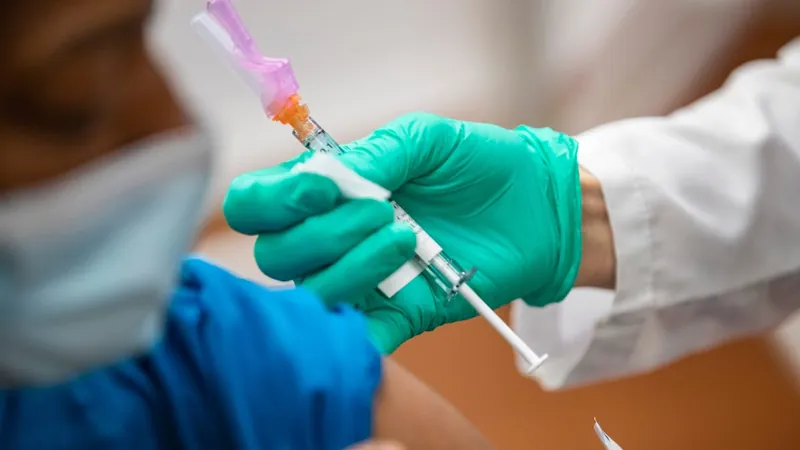
Idaho Health Department Halts COVID Vaccine Program Amid Growing Controversy
2024-11-12
Author: Lok
In a controversial move that has sparked significant debate, the Southwest District Health Department in Idaho has voted to cease its COVID-19 vaccination program. This decision is part of a mounting trend among regional governments pushing back against federal vaccination guidelines.
During their meeting on October 22, board members expressed skepticism about the safety of the COVID-19 vaccine, culminating in a narrow vote to halt the vaccination rollout across the six counties they serve, which include the area surrounding Boise. This decision draws attention in the context of similar actions taken by health departments in states like Texas, Florida, and Michigan, which have also exhibited resistance to COVID-19 vaccination efforts that were once central to their public health campaigns.
In Texas, state lawmakers passed a budgetary amendment that barred health departments and other organizations funded by the state from using taxpayer dollars to promote vaccines. Florida has been particularly vocal in its opposition; in September, the Florida Department of Health warned residents against receiving mRNA COVID-19 shots, following a recommendation from Surgeon General Joseph Ladapo to avoid them. Meanwhile, in Michigan, Ottawa County commissioners rejected a substantial $900,000 grant dedicated to their local health department, further illustrating local leaders' hesitance about COVID-19 initiatives.
The halt of the vaccination program has garnered mixed reactions from Idaho residents. Some citizens, like Judy Call, a 74-year-old from Twin Falls, celebrated the board's decision, stating that it represented a courageous stand against pressure to conform to federal expectations. She expressed gratitude toward the board for what she perceived as upholding local autonomy.
However, health experts are raising alarms about this trend. They caution that abandoning vaccination programs could jeopardize public health, especially for vulnerable populations who may lack access to affordable healthcare options. According to Karl Minges, an associate dean for research at the University of New Haven, local health departments have a crucial responsibility to respond to health crises. He criticized the cessation of the vaccination program as a failure to fulfill this duty, particularly affecting those with limited access to vaccines.
The Centers for Disease Control and Prevention (CDC) continues to report a steady number of COVID-19-related deaths—nearly 300 each week—underscoring the persistent risks associated with the virus.
Stacey Lee, a health law and ethics professor at Johns Hopkins, also criticized the Idaho board for overstepping the authority of the Food and Drug Administration (FDA), which has consistently deemed the COVID-19 vaccines safe and effective. She speculated that this board's decision could eventually lead to legal challenges, echoing recent high-profile court cases about public health policies.
Dr. John Tribble, the board's physician representative, justified the decision by arguing that it weighed the vaccine's risks against its benefits, claiming a potential for more harm than good. Yet, extensive research and safety reviews globally have repeatedly confirmed that COVID-19 vaccines effectively prevent severe disease outcomes.
As Idaho's health department steps away from its vaccination initiatives, the implications for public health remain uncertain. This local decision amidst a backdrop of skepticism toward federal health guidance could influence other regions to reconsider their stance on vaccination, raising critical questions about the future of public health strategies in the face of ongoing pandemic challenges.
Stay informed on this unfolding situation and its potential ramifications for public health across the nation.


 Brasil (PT)
Brasil (PT)
 Canada (EN)
Canada (EN)
 Chile (ES)
Chile (ES)
 España (ES)
España (ES)
 France (FR)
France (FR)
 Hong Kong (EN)
Hong Kong (EN)
 Italia (IT)
Italia (IT)
 日本 (JA)
日本 (JA)
 Magyarország (HU)
Magyarország (HU)
 Norge (NO)
Norge (NO)
 Polska (PL)
Polska (PL)
 Schweiz (DE)
Schweiz (DE)
 Singapore (EN)
Singapore (EN)
 Sverige (SV)
Sverige (SV)
 Suomi (FI)
Suomi (FI)
 Türkiye (TR)
Türkiye (TR)